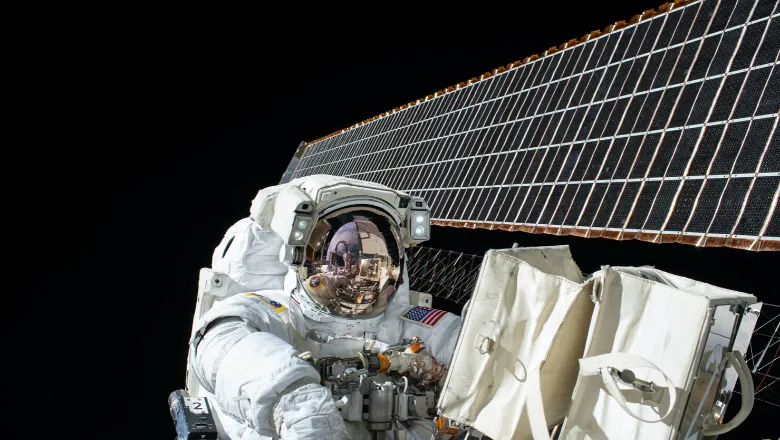The first episode of an astronaut developing a blood clot in space was reported earlier this year. It is unknown how spaceflight impacts the risk of an astronaut developing a blood clot. This study aimed to look specifically at the potential blood clot developing risks for female astronauts during spaceflight. We wanted to understand if their use of the hormonal contraceptive pill for menstrual cycle control, increased that risk.
Dr Varsha Jain, lead author of the study from King’s and a Wellbeing of Women Clinical Research Fellow at the Medical Research Council Centre for Reproductive Health at the University of Edinburgh
05 May 2020
Study reveals how spaceflight affects risk of blood clots in female astronauts
A study of female astronauts has assessed the risk of blood clots associated with spaceflight.

The study, published in Aerospace Medicine and Human Performance, in collaboration with King’s, the Centre for Space Medicine Baylor College of Medicine, NASA Johnson Space Centre and the International Space University, examines the potential risk factors for developing a blood clot (venous thromboembolism) in space.
The findings, which looked at 38 female astronaut flights between 2000 and 2014, found spaceflight and combined oral contraceptive pill (COCP) use does not appear to increase the risk of venous thromboemoblism (VTE).
Developing a VTE in space is life threatening and potentially a mission critical risk. The risk may have been further increased by COCP use, however as female astronauts are more fit and healthy than general population, their risk remains low.
The study, which is the first of its kind, proposes more blood tests be carried out during astronaut selection and during medical reviews. There are points during pre-mission training and during spaceflight, such as particular training activities, which may briefly increase the risk of developing a blood clot, and the authors recommend a review of these.
Finally, the study advises a more holistic approach to be taken for contraceptive agent prescribing as women from all professions, including astronauts, may wish to control their menstrual cycles and occupation related risks should be considered during a risk review.
Dr Jain said: “There may be possible time points in an astronaut's pre-mission training or during the space mission itself where blood clot risk may potentially be transiently increased. Due to the potentially life-threatening nature of blood clots, we would advise further targeted research in this area to further understand how an astronaut's risk of developing a blood clot is altered by spaceflight.”
Dr Virginia Wotring, associate Professor at the International Space University and senior author of the study, said: “We see a need for continuing studies with female astronauts. Much of the previous biomedical research in space was conducted on mostly male astronauts, because most of the astronauts were male. That has changed, and now we need to understand how the spaceflight environment impacts female physiology.”
